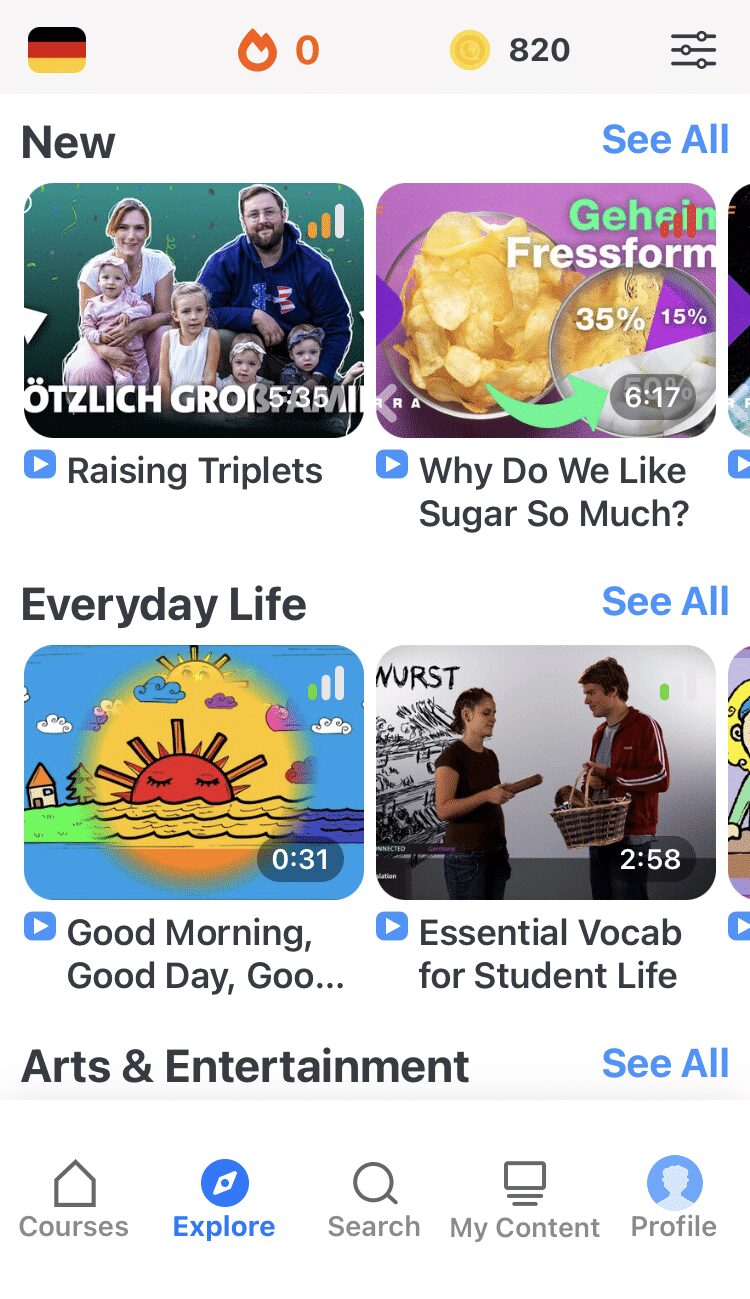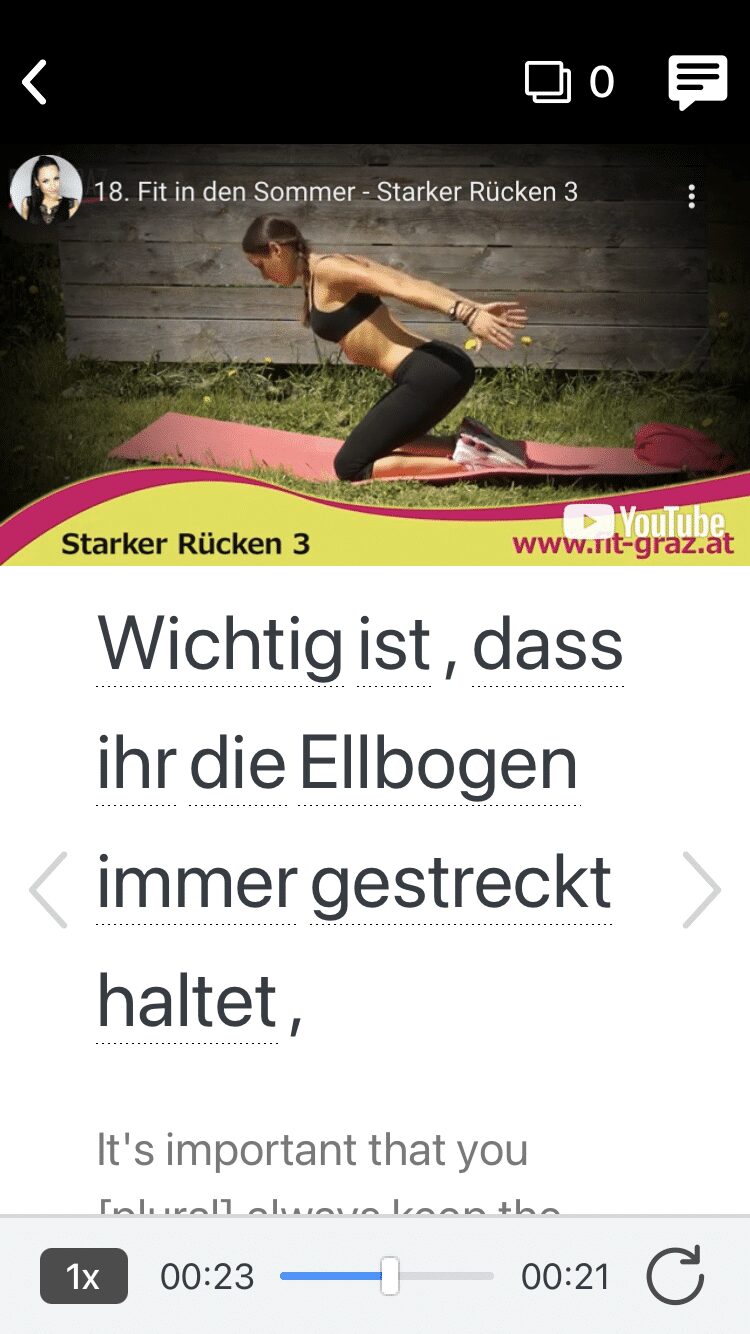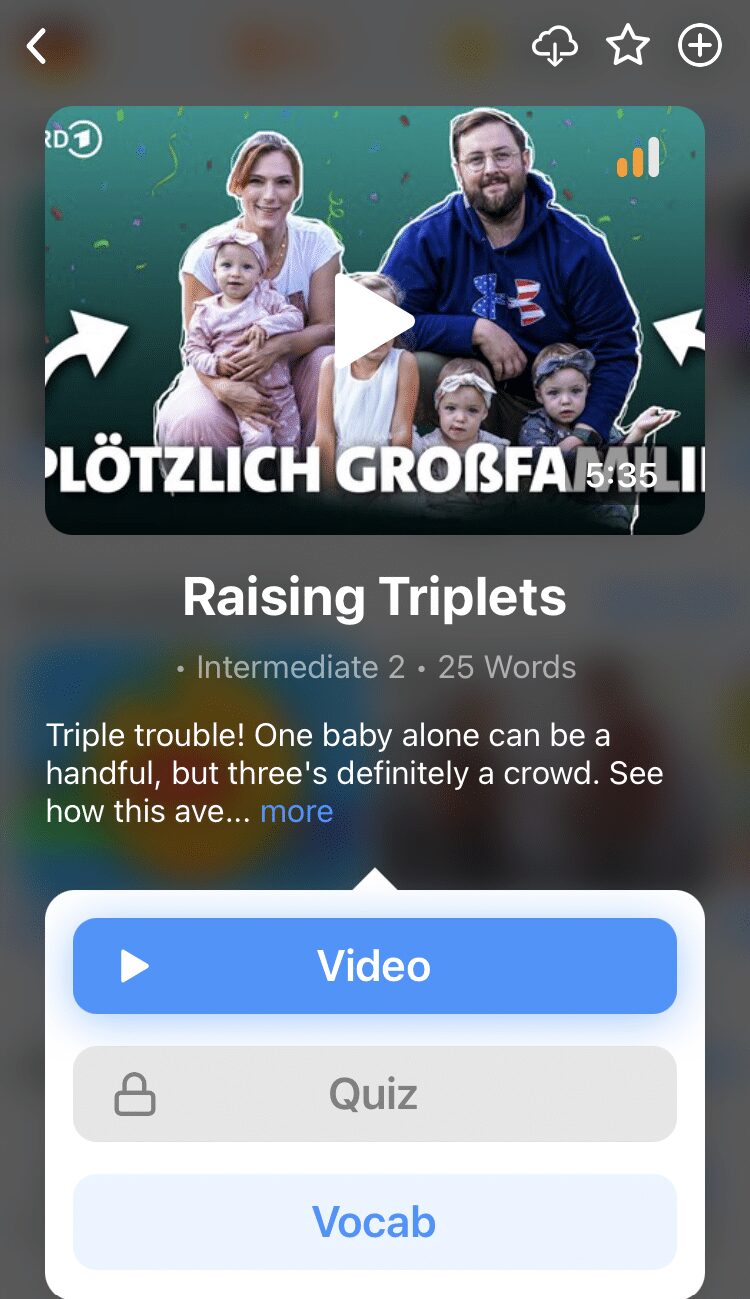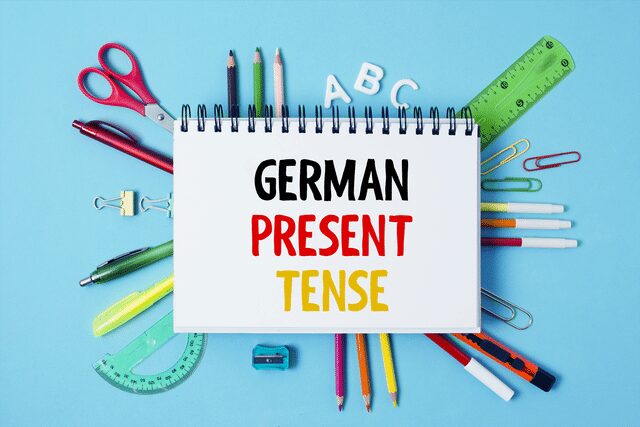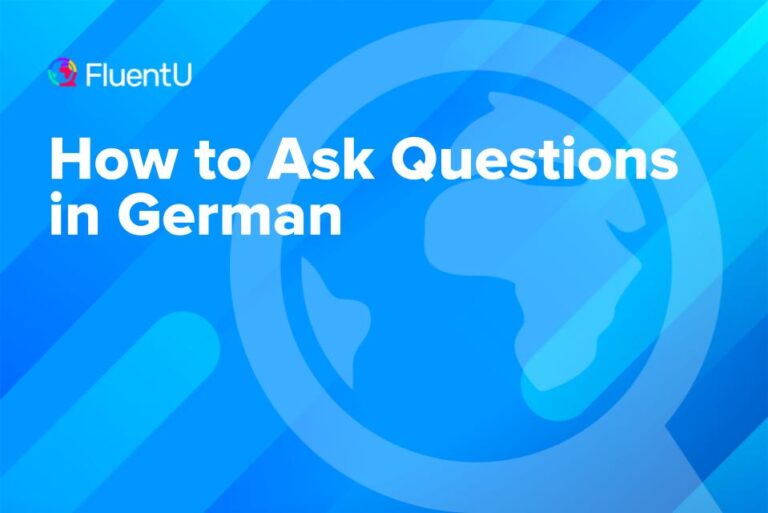Conjugating Verbs in German

German verb conjugation is more than just changing verbs according to tense. You also need to consider the subject pronouns used with those verbs and the types of verbs they are—weak, strong or mixed.
If that sounds a bit too much to wrap your head around, don’t worry. This guide will simplify the process of conjugating verbs in German in three steps.
Download: This blog post is available as a convenient and portable PDF that you can take anywhere. Click here to get a copy. (Download)
1. Check the Subject Pronoun
When conjugating verbs in German, make sure they match the pronoun doing the action of the verb.
Let’s have a quick refresher on German subject pronouns (a.k.a. nominative pronouns):
| Subject | Pronoun |
|---|---|
| I | ich |
| You (informal) | du |
| He | er |
| She | sie |
| It | es |
| One/You (indefinite) | man |
| We | wir |
| You (plural, informal) | ihr |
| They / You (formal; plural or singular) | Sie |
Now, let’s take a common verb like machen (to do, to make), and see how it looks when conjugated in the present tense alongside each pronoun:
| Pronoun | Conjugation of Machen (To Do/To Make) |
|---|---|
| ich | mache |
| du | machst |
| er/sie/es/man | macht |
| wir | machen |
| ihr | macht |
| Sie | machen |
Keep in mind that all of the above words have the same meaning and tense. The only difference is that the endings after the stem mach- change according to the pronoun used with them.
For simplicity’s sake, we used just one verb type and one tense in the above example. As you’ll soon see, things get just a little fiddlier when we go into other verb types and tenses.
2. Determine the Type of Verb
German verbs can be classified into three groups based on how they’re conjugated: weak (regular) verbs, strong (irregular) verbs and mixed verbs.
Weak or Regular Verbs
Fortunately for learners, over 90 percent of German verbs are regular or “weak,” like machen from our earlier example. I say “fortunately,” because conjugating weak verbs involves the same basic steps:
- Get the infinitive form of the verb. Recall that the infinitive form is the basic form of the verb, equivalent to the “to do” verbs in English. In German, infinitive verbs often end in -en, though you’ll also encounter ones that end in -eln or -ern.
- Identify the Stamm
(the root/stem) of the verb. Normally, the root or stem is the part that comes before the endings -en, -eln or -ern. With regular verbs, the stems remain the same throughout conjugations.
- Change the ending. Conjugate regular verbs by removing the ending and replacing it with the suffix that indicates tense.
For example, let’s conjugate the weak verb sagen (to say) in the present tense. Keep the stem -sag untouched, chop off the ending and replace it with the appropriate one:
| Pronoun | Conjugation of Sagen (To Say) |
|---|---|
| ich | sage |
| du | sagst |
| er/sie/es/man | sagt |
| wir | sagen |
| ihr | sagt |
| Sie | sagen |
Strong or Irregular Verbs
As their name suggests, strong or irregular verbs are the opposite of weak or regular verbs. With strong verbs, the stems change their vowels in the present, simple past and past participle, and change their endings in the simple past and past participle.
Luckily, there’s a method to this apparent madness. For example, in the present tense, the stem vowel changes only occur in the du and er/sie/es/man forms (second and third person singular). Let’s look at the strong verb lesen (to read), which has a vowel change from e to ie:
| Pronoun | Conjugation of Lesen (To Read) |
|---|---|
| ich | lese |
| du | liest |
| er/sie/es/man | liest |
| wir | lesen |
| ihr | lest |
| Sie | lesen |
So, how do you know if you’re looking at a strong verb? The bad news is, you have to learn the strong verbs by heart. The good news is, there aren’t too many of them.
Mixed Verbs
Mixed verbs fall somewhere in the middle of “strong” and “weak” verbs. They still see stem changes in the past tense, but stick with the standard verb endings on their new roots.
For example:
| Pronoun | Bringen (To Bring) | Denken (To Think) |
|---|---|---|
| ich | brachte | dachte |
| du | brachtest | dachtest |
| er/sie/es/man | brachte | dachte |
| wir | brachten | dachten |
| ihr | brachtet | dachtet |
| Sie | brachten | dachten |
3. Conjugate According to Tense
Now that you know all about the different verb types, let’s study exactly how to conjugate them.
Present Tense Conjugation
Like its English counterpart, the present tense in German describes habits that you regularly do. It also functions like the English present progressive—i.e., describing things that are happening at the moment.
Weak Verbs and Mixed Verbs (Present Tense)
When conjugating weak verbs and mixed verbs in the present tense, just replace the ending.
Take the weak verb fragen (to ask) and the mixed verb bringen (to bring), for example:
| Pronoun | Present Tense Ending | Weak Verb (fragen) | Mixed Verb (bringen) |
|---|---|---|---|
| ich | -e | frage | bringe |
| du | -st | fragst | bringst |
| er/sie/es/man | -t | fragt | bringt |
| wir | -en | fragen | bringen |
| ihr | -t | fragt | bringt |
| Sie | -en | fragen | bringen |
Strong Verbs (Present Tense)
Strong verbs actually use the same present tense endings as the weak and mixed verbs. However, they also see vowel changes in their stem in the du and er/sie/es/man forms.
Take a look at essen (to eat), with its e to i vowel change, and fahren (to travel) going from a to ä.
| Pronoun | Essen (To Eat) | Fahren (To Travel) |
|---|---|---|
| ich | esse | fahre |
| du | isst | fährst |
| er/sie/es/man | isst | fährt |
| wir | essen | fahren |
| ihr | esst | fahrt |
| Sie | essen | fahren |
For more on conjugating German verbs in the present tense, read this post:
How to Conjugate German Verbs in the Present Tense | FluentU German Blog
German present tense is an important topic for beginners who are learning to construct basic German sentences. Here we’ll teach you how to conjugate German verbs of all…
Past Tense Conjugation
German has two different past tenses that correspond to the ones we know and love in English: the simple past and the perfect tense.
Simple Past Tense
The German simple past most commonly appears in writing and is mostly only used in speech with certain common verbs like haben (to have) or geben (to give).
Weak Verbs (Simple Past Tense)
For weak verbs like sagen (to say), just change the endings to the ones used for the simple past:
| Pronoun | Past Tense Ending | Sagen (To Say) |
|---|---|---|
| ich | -te | sagte |
| du | -test | sagtest |
| er/sie/es/man | -te | sagte |
| wir | -ten | sagten |
| ihr | -tet | sagtet |
| Sie | -ten | sagten |
Mixed Verbs (Simple Past Tense)
Mixed verbs use similar verb endings as weak verbs in the past tense.
The difference is that their stems’ vowels also change, as you can see with the verb brennen (to burn):
| Pronoun | Past Tense Ending | Brennen (To Burn) |
|---|---|---|
| ich | -te | brannte |
| du | -test | branntest |
| er/sie/es/man | -te | brannte |
| wir | -ten | brannten |
| ihr | -tet | branntet |
| Sie | -ten | brannten |
Strong Verbs (Simple Past Tense)
Strong verbs usually undergo vowel stem changes in the past tense and past participle, similar to the English “swim, swam, swum.”
They also use different endings than their weak counterparts in the simple past. The first and third persons singular (ich and er/sie/es/man) are always the same in that they don’t have any ending at all, so they’re just the stem with its vowel change.
The rest have the same endings as the present tense.
Take a look at bleiben (to stay), for example:
| Pronoun | Simple Past of Bleiben (To Stay) |
|---|---|
| ich | blieb |
| du | bliebst |
| er/sie/es/man | blieb |
| wir | blieben |
| ihr | bliebt |
| Sie | blieben |
Notice how the ich and er/sie/es/man conjugations are just blieb. Easy!
Here’s some more information on conjugating verbs in the German past tense:
https://www.fluentu.com/blog/german/german-past-tense/
Perfect Tense
In German, the perfect tense ( Perfekt ) is also known as the present perfect.
It’s the German equivalent of the “have + (past action)” in English, and it follows this formula:
present tense of haben or sein + past participle of the verb
Haben and sein are conjugated as follows in the present tense:
| Pronoun | Haben (To Have) | Sein (To Be) |
|---|---|---|
| ich | habe | bin |
| du | hast | bist |
| er/sie/es/man | hat | ist |
| wir | haben | sind |
| ihr | habt | seid |
| Sie | haben | sind |
Not sure which to use? You use haben for verbs describing most actions (to read, to watch, to eat, to dance) and sein for verbs that describe movement between two places or a change of state (to go, to travel, to move, to die).
There are some odd exceptions like verändern (to change) using haben, or bleiben (to stay) which uses sein, but it’s a good rule of thumb for most cases.
Weak and Mixed Verbs (Perfect Tense)
Weak and mixed verbs conveniently stick to regular rules for their past participles. No matter the subject pronoun used, the formula is:
ge- + [verb stem] + -t
For example:
| Infinitive | Past Participle | Example Sentence |
|---|---|---|
| sagen (to say) | gesagt | Ich habe das schon gesagt. (I already said that.) |
| fragen (to ask) | gefragt | Sie hat nach seinem Namen gefragt. (She asked for his name.) |
Mixed Verbs (Perfect Tense)
Mixed verbs follow the same formula as above, but this time the verb stem includes a vowel change:
ge- + [verb stem with vowel change] + -t
For example:
| Infinitive | Perfect Tense |
|---|---|
| denken (to think) | gedacht |
| bringen (to bring) | gebracht |
Strong Verbs (Perfect Tense)
Irregular past participles are a bit trickier to pin down. Sometimes, they have a stem vowel change in their past participle; other times, they don’t.
Because of this, you’ll usually just see them listed in textbooks alongside the root form so learners won’t have such a hard time with them.
That said, they’re generally conjugated like this:
ge- + [verb stem/verb stem with vowel change] + -en
| Irregular Verb | Meaning | Past Participle |
|---|---|---|
| essen | to play | gegessen |
| fahren | to cook | gefahren |
| schließen | to hear/listen | geschlossen |
| nehmen | to take | genommen |
| sprechen | to speak | gesprochen |
Read more about German past participles here:
The German Past Participle | FluentU German Blog
The German past participle is formed for regular verbs by adding ge- and -t to the stem. With irregular verbs, you’d add ge- and-en to the stem, which goes through a…
Future Tense Conjugation
Compared to the other two tenses, this one is a total cakewalk. It’s just like English, where you need the future auxiliary (“will”) plus the verb in the infinitive. In German, you use werden in place of “will,” conjugate werden in the present tense and send the infinitive to the end of the clause.
Here’s how you’d conjugate werden in the present tense:
| Pronoun | Present Tense of Werden |
|---|---|
| ich | werde |
| du | wirst |
| er/sie/es | wird |
| wir | werden |
| ihr | werdet |
| Sie | werden |
And here’s how it would look like in practice for the verb gehen (to go):
Ich werde den Film sehen.
(I will see the movie.)
Note that, similar to English, it’s actually far more common to talk about the future by combining the present tense with a time marker:
Morgen gehen wir ins Kino.
Tomorrow, we’re going to the cinema.
Need more help on the German future tense? Check out this post:
https://www.fluentu.com/blog/german/german-future-tense/
How to Practice Verb Conjugation in German
Arguably, the hardest part about learning German conjugations is memorizing the irregular verbs.
The best (though not necessarily most accurate) workaround is to check the verb against its English counterpart, since English and German are both West Germanic languages. If it’s a regular English verb, there’s a decent chance it’s also regular in German. Similarly, if it’s one of those “swim, swam, swum” verbs with a changing vowel, it’s almost definitely going to be irregular in German.
As for getting confident with conjugation in general, it’s all about input and repetition. If German isn’t your native language, you could also practice with resources like:
- Rocket Languages. Rocket Languages combines training for all of the major language skills—reading, writing, listening and speaking. Some of its standout features include authentic audio and a gamified interface. (Click here for a complete Rocket Languages review.)
- Conjuguemos. Conjuguemos has a chart for each of the verb categories in German. It makes the learning experience even more fun with games and quizzes where you choose pronouns, verbs and conjugations.
- German.net. German.net is packed with activities and tips for improving your German. The verb-related exercises, in particular, range from very easy to difficult, and you can do both fill-in-the-blank exercises and multiple choice tests.
- ThoughtCo. ThoughtCo has plenty of useful and concise resources on conjugating specific verbs in various tenses.
- Vocabulix. Vocabulix combines plenty of drills and tests for you to roll right through as you’re learning about conjugation. It’s a beautiful resource for only working on the verbs you struggle with.
- Dartmouth’s German Word Order page. This resource is basically a large document with outlines on what rules to follow when ordering words (including verbs) in a sentence.
- Quizlet. With Quizlet, you can go through the more unique verbs that you may not have learned on the first day of German class. Use the audio clips to gain a better understanding of the pronunciations, and star certain verbs so that groups of them can be studied together.
- Deutsch-lernen.com. Deutsch-lernen.com caters to learners of all levels. They have quick exercises and quizzes you can use to practice, as well as grammar pages and word lists you can browse through.
Alternatively, you could use a German conjugation app to make life a whole lot easier. Just keep in mind that these apps should be treated as study aids rather than linguistic crutches—i.e., you don’t want to have to look up a common verb conjugation in the middle of a conversation with a friend!
With these rules and resources for German verb conjugation, all you have to do is practice and practice until the process becomes second nature to you.
Download: This blog post is available as a convenient and portable PDF that you can take anywhere. Click here to get a copy. (Download)
And One More Thing...
Want to know the key to learning German effectively?
It's using the right content and tools, like FluentU has to offer! Browse hundreds of videos, take endless quizzes and master the German language faster than you've ever imagine!
Watching a fun video, but having trouble understanding it? FluentU brings native videos within reach with interactive subtitles.
You can tap on any word to look it up instantly. Every definition has examples that have been written to help you understand how the word is used. If you see an interesting word you don't know, you can add it to a vocabulary list.
And FluentU isn't just for watching videos. It's a complete platform for learning. It's designed to effectively teach you all the vocabulary from any video. Swipe left or right to see more examples of the word you're on.
The best part is that FluentU keeps track of the vocabulary that you're learning, and gives you extra practice with difficult words. It'll even remind you when it’s time to review what you’ve learned.
Start using the FluentU website on your computer or tablet or, better yet, download the FluentU app from the iTunes or Google Play store. Click here to take advantage of our current sale! (Expires at the end of this month.)
